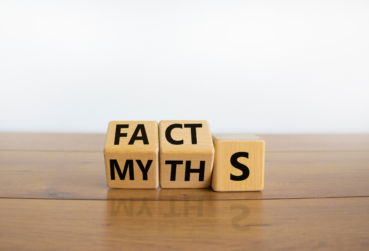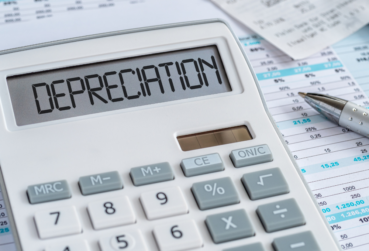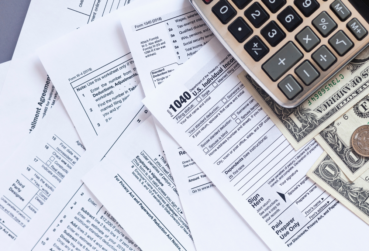How Self-Employed Taxpayers Can Prepare for Tax Season
 The little things independent contractors should do before April.
The little things independent contractors should do before April.
Provided by Jennifer Babcock, CPA
Cordell, Neher & Company, PLLC - Wenatchee Certified Public Accountant
Are you self-employed, do you freelance, or do you run a business on the side? You have a complicated tax situation, all stemming from one fact – when you earn a paycheck taxes are not immediately taken out of it.
Many self-employed taxpayers are caught off-guard when tax season arrives. They are stunned to realize how much tax they owe. If you would rather not be one of them, pay attention to these details.
You should receive all your 1099-MISC forms by early February. If you earn more than $600 working for a client or customer during the year, that customer will send you a Form 1099-MISC. Frustratingly, some customers miss the January 31 deadline for issuing 1099s and send them out in the Sprin - or don’t send them at all. Whether you get a 1099 on time or not, you must report the income to the IRS on Schedule C or Schedule C-EZ. If you neglect to report any 1099 income, the IRS will send you a letter noting the missing income and requesting the corresponding tax payment.
If a customer has botched information on a 1099, tell the customer right away – they may be able to correct the error before sharing the misinformation with the IRS. If it turns out the IRS already has the incorrect information, ask the customer to correct it on your behalf.
If certain requirements are met, it is important to note that you as a small business owner have an obligation to send out 1099s to your own vendors. Typically, the threshold for this reporting requirement is $600 or more paid during the year to any one vendor for services rendered to your business. A couple examples could be legal fees paid to an attorney or services provided by a contractor for repairs. There are several exceptions to this reporting requirement. Consulting a tax professional for assistance with issuing 1099s would be beneficial for accurate and timely reporting compliance. The penalties associated with noncompliance and willful disregard to the rules regarding issuing 1099s can be quite steep, so be sure to take this requirement seriously.
You may also need to report the gross earnings to the Washington State Department of Revenue (DOR) for Business & Occupation taxes - our State’s gross receipts tax. Be sure to check the State DOR website for taxation guides to your business’s industry.
As a self-employed taxpayer you can deduct many things. 50% of the Medicare and Social Security tax you pay is deductible. Hardware and software expenses as well as work-related advertising, travel, phone charges, mailing expenses, and office supply purchases may be deducted. When compiling deductions, don’t forget to keep track of your business-related mileage; this can be an especially rich deduction. You can deduct rent you pay to house your business, the cost of books and publications you purchase for it, and legal and professional fees you pay on behalf of it. You may also deduct expenses associated with a home office if you work out of your home, whether you rent or own.
Maybe you pay for your own health coverage. Self-employed taxpayers who do so are eligible to deduct the cost of their health insurance premiums. Also deductible are Medicare premiums you pay for Part B, Part D, and the expense you pay for a Part C (Medicare Advantage) plan or a Medigap policy.
In addition, in 2018 the Tax Cuts and Jobs Act will provide an additional deduction of up to 20% of your business income for qualified taxpayers. This deduction has some limitations and complications, but may benefit your small business.
If you accept credit and debit cards as payment, you are sure to receive Form 1099-K. This IRS form reports income from debit card, credit card, and third-party network transactions. Your Form 1099-K should arrive in early February. When you get it, confirm its accuracy by checking your gross receipts, payment card records, and merchant statements. See that it reports income generated through all payment avenues (PayPal or similar services, credit cards, etc.)
The income amount reported on your Form 1099-K does not have to be reconciled with the gross receipts you report on Form 1040. This is because adjustments to sales income (such as chargebacks) are not reported on Form 1099-K. That fact noted, keep documentation handy to support both your income and any deductions you want to claim on your 1040 and your State tax return.
Taxes on self-employment income can be steep. If your unincorporated business is turning a profit, you should be making quarterly estimated tax payments for two reasons. One, your earnings from this venture are not having taxes withheld from them like traditional employment (W-2 wages); and two, your net earnings are subject to self-employment tax - a tax owed in addition to regular income tax that is calculated at a flat 15.3% of the net income from your self-employment ventures.
Coping with quarterly self-employment and income taxes may become a little easier if you change your withholding at your regular job. If you (or your spouse) do that, you might free up the money to cover the taxes generated by your small business.
You can also defer taxes by creating and contributing to a qualified retirement plan linked to your business, such as a Solo 401(k) or Simplified Employee Pension (SEP) plan. Your contributions to these plans are tax deductible, and they give you a chance to boost your retirement savings.
If your sideline business has a loss for 2017, that loss is only deductible as a business loss if the IRS characterizes your business as an activity with a profit motive instead of a hobby. Therefore, you should take a look at the hobby loss rules before trying to claim such a deduction.
Jennifer is a is a Certified Public Accountant with Cordell, Neher & Company, PLLC a Wenatchee public accounting firm. Jennifer Babcock may be reached at (509) 663-1661 or jennifer@cnccpa.com. www.cnccpa.com
Events & Deadlines
Latest Past Events
Community Service Day
Cordell Neher & Company, PLLC 175 E Penny Rd #1, Wenatchee2024 Shred Event
Cordell Neher & Company, PLLC 175 E Penny Rd #1, WenatcheeCNC Newsletter
Subscribe and stay informed on policy changes that could have an impact on you.
Footer Contact
Check the background of your financial professional on FINRA's BrokerCheck®
Privacy & Usage: The information on the Cordell, Neher & Company, PLLC website is provided with the understanding that it should not be substituted, in any way, for consultation with a professional Certified Public Accountant, accountant, tax, legal or other competent advisor. Cordell, Neher & Company, PLLC makes every attempt to ensure that the information contained on their websites are obtained from reliable sources, but is not responsible for any errors and/or omissions or from the results obtained from the use of any information. This site contains links to servers maintained by other organizations. Cordell, Neher & Company, PLLC cannot provide any warranty regarding the accuracy or source of information found on any of these servers, the content of any file the user might use to download from a third-party site, and is not responsibility for the content found on any of these servers or for any links these servers maintain with other servers.
Avantax affiliated advisors may only conduct business with residents of the states for which they are properly registered. Please note that not all of the investments and services mentioned are available in every state. Securities offered through Avantax Investment ServicesSM, Member FINRA, SIPC, Investment Advisory services offered through Avantax Advisory ServicesSM,Insurance services offered through an Avantax affiliated insurance agency. 3200 Olympus Blvd., Suite 100 Dallas, TX 75019 972-870-6000.
Avantax financial professionals may only conduct business with residents of the states for which they are properly registered. Please note that not all of the investments and services mentioned are available in every state. Securities offered through Avantax Investment Services.SM, Member FINRA, SIPC. Investment Advisory Services offered through Avantax Advisory Services SM. Insurance services offered through an Avantax affiliated insurance agency. Method 10® is property of Avantax Wealth Management.SM All rights reserved 2020. The Avantax family of companies exclusively provide investment products and services through its representatives. Although Avantax Wealth Management does not provide tax or legal advice, or supervise tax, accounting or legal services, Avantax representatives may offer these services through their independent outside business. This information is not intended as tax or legal advice. Please consult legal or tax professionals for specific information regarding your individual situation.
The Avantax family of companies exclusively provide financial products and services through its financial representatives. Although Avantax Wealth ManagementSM does not provide or supervise tax or accounting services, Avantax Representatives may offer these services through their independent outside business. Content, links, and some material within this website may have been created by a third party for use by an Avantax affiliated representative. This content is for educational and informational purposes only and does not represent the views and opinions of Avantax Wealth ManagementSM or its subsidiaries. Avantax Wealth ManagementSM is not responsible for and does not control, adopt, or endorse any content contained on any third party website.
This information is not intended as tax or legal advice. Please consult legal or tax professionals for specific information regarding your individual situation. Investments & Insurance Products: Are not insured by the FDIC or any federal government agency- Are not deposits of or guaranteed by the bank or any bank affiliate- May lose Value
Avantax Investment ServicesSM and Avantax Advisory ServicesSM are not affiliated with CNC Financial Group, LLC.
© 2024 Cordell, Neher & Company PLLC • Designed by Pixel to Press











